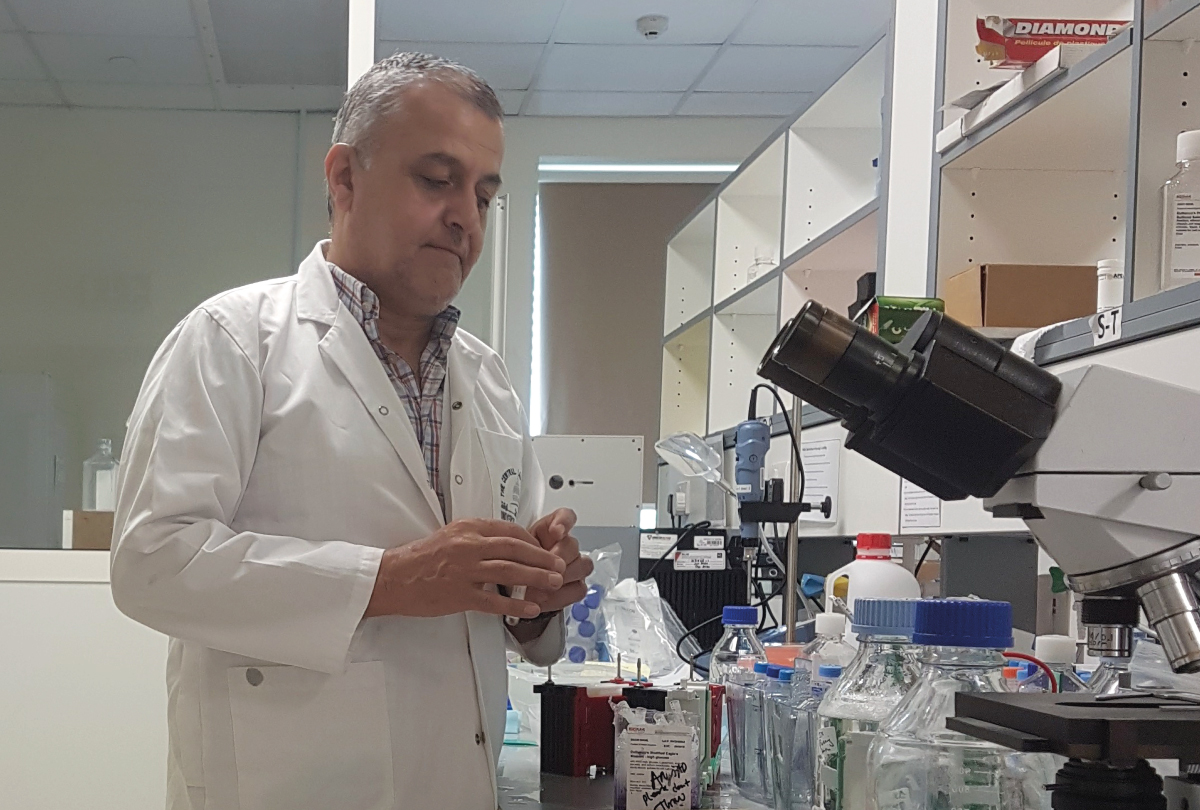
Breast cancer is the most common cancer among women and by funding breast cancer research, Al Jalila Foundation is enabling UAE-based scientist Dr Mawieh Hamad from University of Sharjah to ‘evaluate the anti-carcinogenic potential of biologically-driven intracellular iron depletion’ and discover improved treatment options for patients.
Breast cancer cells appear to exhibit increased levels of oxidative stress while iron chelation (removal of iron excess) has shown to minimise oxidative stress levels to where cell growth and division is reduced or stopped. However, iron chelation therapy carries toxic risks that potentially result in significant side-effects and even death. Other studies have suggested that estrogen treatment may also lead to intracellular iron depletion to minimise oxidative stress levels in cancer cells.
This study is examining the capacity of estrogen receptor (ER) engagement to induce cellular iron depletion and anti-growth effects in breast cancer cells. The work has shown that ER signaling associates with significant labile iron pool (LIP) depletion resulting in reduced cell viability and proliferation with increased cell autophagy. This suggests the carcinogenic potential of ER signaling may exert significant anti-growth effects in cancer. The study is currently in testing stages and data has already been presented in international scientific meetings and published in several international peer-reviewed journals.
Read more here about this promising research to give hope to breast cancer patients.

